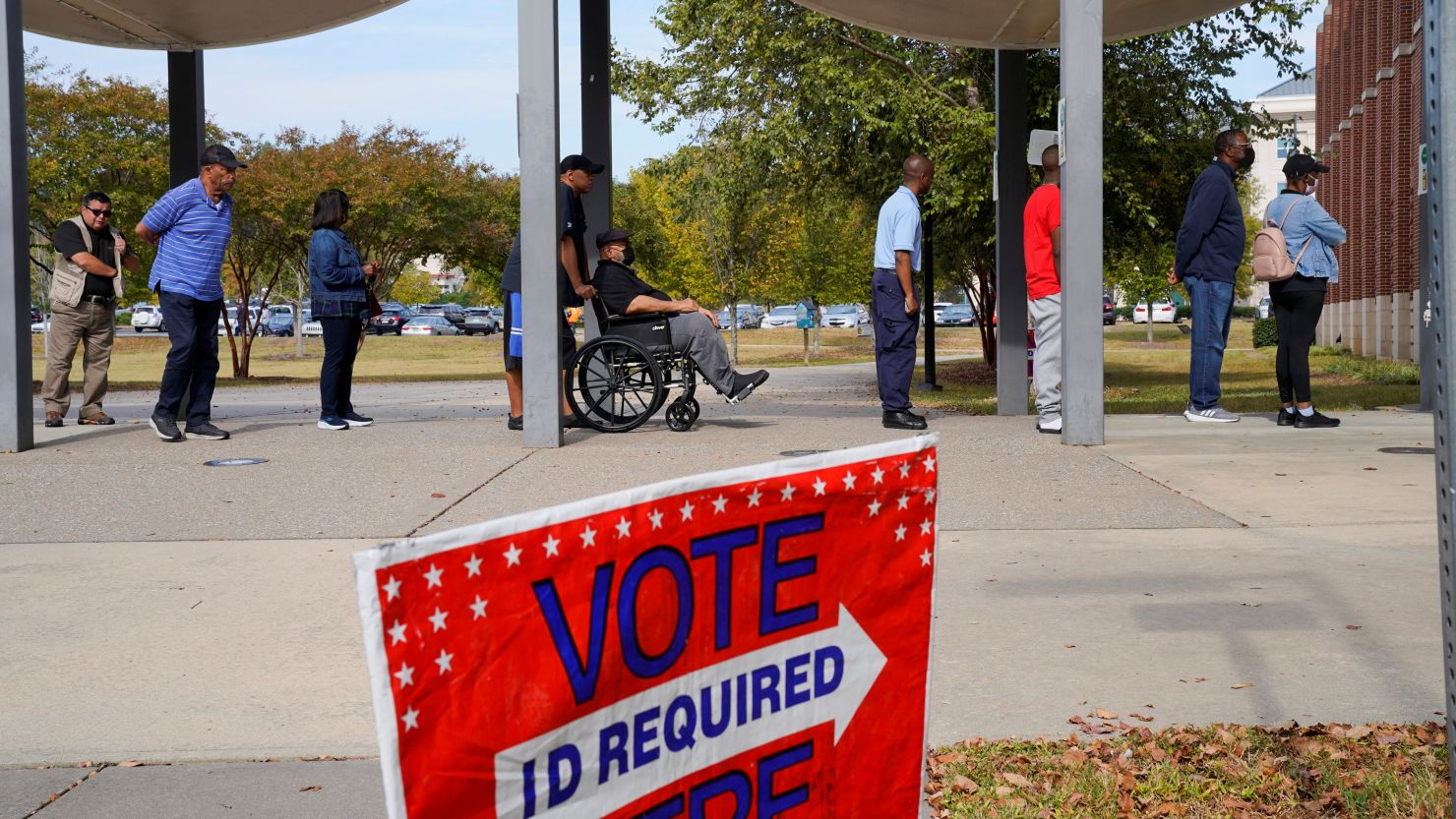Editor’s Note: Joshua A. Douglas is a law professor at the University of Kentucky J. David Rosenberg College of Law. He is the author of “Vote for US: How to Take Back Our Elections and Change the Future of Voting.” Find him at www.joshuaadouglas.com and on Twitter @JoshuaADouglas. The views expressed in this commentary are his own. Read more opinion on CNN.
Democracy itself is on the ballot in 2022.
Not only do we have candidates who have questioned the 2020 election or refuse to say they will accept defeat this year, but numerous states and localities also will vote on measures to change how elections are run or who may vote in them. The outcomes of those ballot measures could have a significant impact on the health of American democracy moving forward.
A few states will determine whether to make voting easier. Connecticut will decide whether to amend its state constitution to allow for early voting, a needed improvement given that it is one of the few states without any no-excuse early voting opportunities.

Proposal 2 in Michigan would establish nine days of early voting and would improve the absentee balloting process, such as requiring the state to fund prepaid stamps, provide a ballot tracking system and offer ballot drop boxes. Enshrining these pro-voter policies in the state constitution would immunize them from repeal by the state legislature.
Arizona and Nebraska are on the other side of the ledger, asking voters to approve rules that could make it harder for some people to cast a ballot. Arizona has a proposed voter ID measure, which would require additional identifying information on voter affidavits that accompany mail-in ballots and would eliminate the ability of in-person voters to show two pieces of non-photo identification in lieu of a photo ID. Nebraska voters will similarly decide on a state constitutional amendment that would require a photo ID for voting.
Studies show that strict photo ID requirements can have a disenfranchising effect, especially on minority communities, while they do not improve election integrity given that in-person impersonation rarely occurs. At a time when democracy is under attack, we should focus on ways to improve voter turnout, not make it harder to participate.
There are also ballot initiatives in Ohio and Louisiana to amend the state constitutions to ensure that noncitizens cannot vote in local elections. These measures are likely a response to localities in some places, particularly in California and Maryland, that allow noncitizens to vote.
An appeals court recently put on hold a state trial judge’s decision that the San Francisco law is unconstitutional under the California constitution, meaning that noncitizens can vote in this year’s election.
Similar litigation is underway over New York City’s law; a trial court ruled the law to allow noncitizens to vote unconstitutional, but the case is on appeal. Meanwhile, Oakland, California, residents will vote on whether to allow resident noncitizens who are legally recognized caregivers of a child to vote in local school board elections.
Oakland will also decide whether to adopt a “democracy vouchers” program for public financing of local campaigns, similar to the system for funding campaigns in Seattle. Portland, Maine, has a Clean Election Fund measure on the ballot to create a public financing system for local elections.
Meanwhile, voters in Culver City, California, will decide whether to lower the voting age to 16 for school board and city elections. A handful of cities in California and Maryland have already adopted such a measure. Proponents note that, alongside improved civics education, lowering the voting age encourages young people to engage in democracy while they are in high school and can create lifelong voters. Along the same vein, Hawaii County will determine whether to create a Youth Commission to advise local politicians on youth engagement.
Nevada voters will decide whether to adopt ranked choice voting statewide, similar to how many elections in Alaska and Maine are conducted. The Nevada system would first use a primary to determine the top five candidates, with voters choosing one candidate regardless of party affiliation. Then, in the general election, voters would rank the remaining five in order of preference, though they could also rank fewer candidates if they wish.
If one hopeful receives a majority of first-place votes, then that candidate is the winner. If no one has a majority, however, then the candidate with the fewest first-choice votes is eliminated, and those ballots have their second-choice count instead. The process repeats until there is a candidate with a majority of votes when counting first-place votes along with ballots whose first choice is eliminated and which selected that candidate second (or third, if the voter’s first two candidates were eliminated).
Ranked choice voting leads to more positive campaigns and greater participation as voters recognize that they aren’t wasting a vote given that their preferences may come into play, proponents argue. Nevada voters will now decide whether to follow Maine, Alaska and numerous cities to embrace this pro-democracy measure.
Several localities are also considering ranked choice voting for their elections. Portland, Oregon, will decide whether to adopt “proportional ranked choice voting” for its City Council, which combines ranked choice voting with multimember districts.
The idea is to have voters select multiple City Council members for each district, using ranked choice voting to make their selections. Proponents say that this voting method gives voters even more choices and helps to elect someone that most people have ranked highly. The same idea is before voters in Portland, Maine.
Ranked choice voting is on the ballot in cities in California, Colorado, Illinois and Washington state as well. Seattle voters will choose between ranked choice voting and approval voting, where voters can select as many candidates as they wish, but not rank them, and the person with the most votes wins.
Come election night, most pundits will focus on whether Democrats have held the House of Representatives and Senate, or whether election deniers have won various offices – especially those who run elections and could be in positions to refuse to certify results in 2024.
But we shouldn’t ignore democracy measures on the ballot all over the country. The rules passed this year will affect the administration of the 2024 election and whether we will have a fair democratic process, where people have easy access to the ballot and voters, not restrictive election rules, determine the outcomes.




